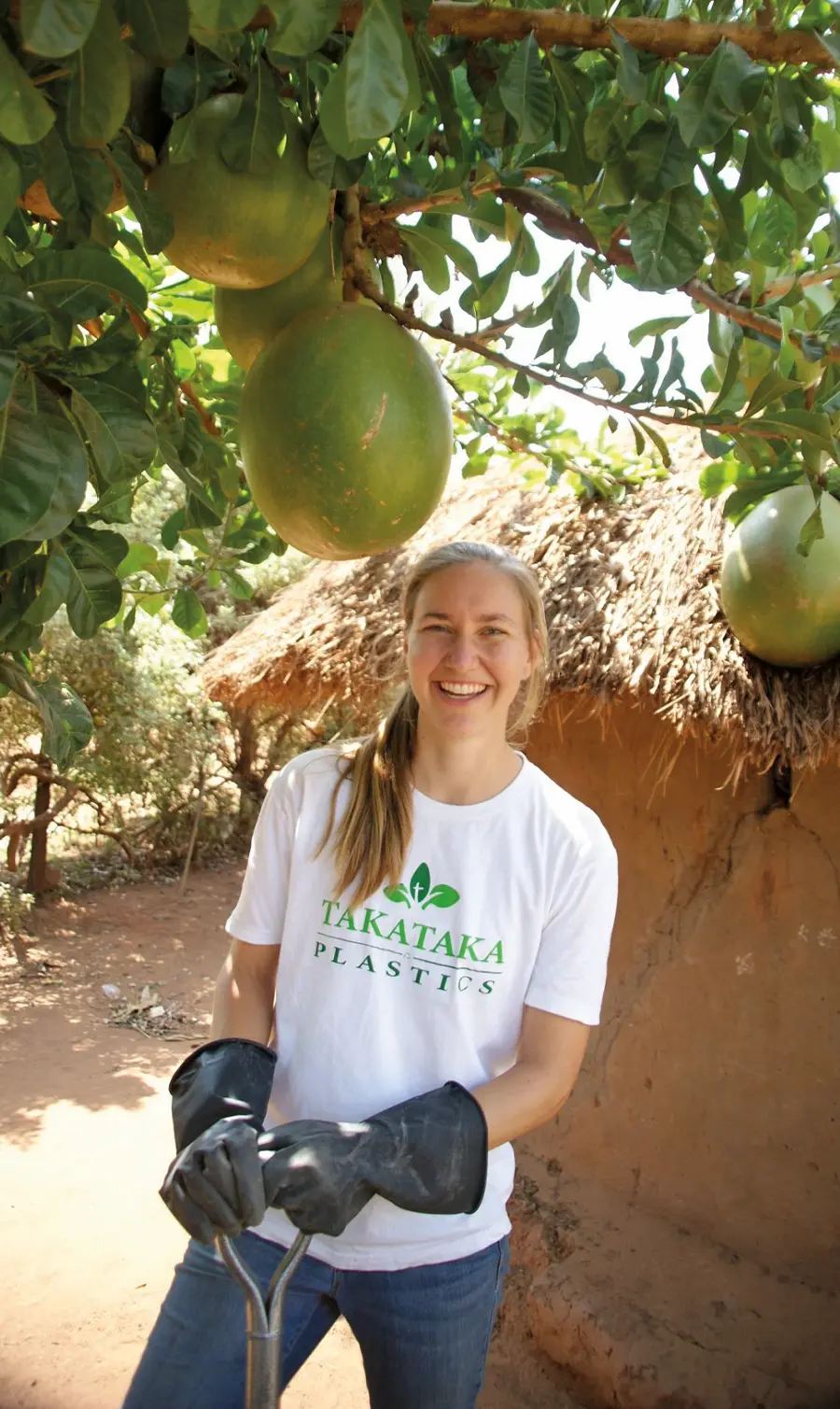Innovation Abroad

Gulu University is on the other side of town from her full-time role as the co-founder, co-CEO and chief technology officer at Takataka Plastics, a startup that she co-created to address the city’s significant plastic waste problem and create job opportunities.
But why here? Plastic waste is an issue practically everywhere. And for someone as driven as Balcom, entrepreneurial and engineering opportunities would have been available practically everywhere too. She could have found professional success here in her home state of New Hampshire, where she pitched on TV’s “Shark Tank” while still in high school; and at UNH, where she was named a Hamel Scholar and earned her mechanical engineering degree. Or why not California, where she moved to pursue her Ph.D. at Berkeley, and earned awards from the National Science Foundation and USAID, in addition to being named a recipient of the Lemelson-MIT Student Prize and a Fulbright Scholar?
Why Uganda?
It started with a trip during her sophomore year at UNH, when she and fellow students spent two weeks in the East African country as part of a UNH Engineers Without Borders trip, funded by the UNH Emeriti Council Student International Service Initiative Grant, now known as the International Changemaker Grant.
On that trip, Balcom says she became enchanted by the vibrant colors and robust energy in Gulu City.
“When you move through town, there is so much happening. There’s a lot of energy, music playing in all the different shops. There’s so much life, community and happiness,” Balcom recalls.
Still, she also saw the city’s significant problem with trash, specifically plastic waste that piled up in empty lots and clogged the drainage systems.
“It is everywhere. There is a lack of infrastructure for waste management and a lack of awareness that it is bad for the environment,” Balcom says.
Fast-forward to her first semester of grad school at Berkeley.
“There was an entrepreneurship competition called the Big Ideas Contest. I just thought it sounded really fun, like using entrepreneurship to solve a social problem. And I was looking for funding to get back to Uganda.”
With the nearest recycling plant more than six hours away from Gulu City, Balcom endeavored to offer a local solution that incentivized recycling and created a circular economy by turning the plastic into useful products.
“I went back to Uganda over summer break and partnered with Gulu University, working with their students and faculty. That first summer was about trying to understand the problem,” she explains.
Developing recycling machines for PET (polyethylene terephthalate) plastics became the goal for Balcom and co-founder Peter Okwoko, an IT lecturer at Gulu University.
Takataka Plastics opened in January 2020. The name means “rubbish” in Swahili. It remains the only large-scale recycler of PET plastic waste in East Africa, turning the waste into sustainable products like plant pots, wall tiles, furniture, phone holders and writing tablets. The company has 40 full-time employees and more than 300 part-time waste collectors. There are plans to expand into more cities.
Balcom carries the Ugandan sense of community into the business. Employees are offered classes in financial literacy and life skills. Every Friday, there are all-staff counseling sessions.
“We all eat lunch together. As long as it’s not raining, we all sit outside under the mango tree at long tables. Everyone hangs out, talks and eats together. It is one of my favorite parts of the day,” she says.
Along with those daily lunches, Balcom says she enjoys the bike rides to the university. She is currently teaching a class on entrepreneurship to fourth-year engineering students.
“I can see that these Ugandan students are the ones with the knowledge of the problems in their own communities and have ideas to solve the problems. They might just need to find resources, investors or funding,” Balcom says.
She wants to continue to lead the way for the next generation of social change agents.
“I want to create opportunities for Ugandan students and Ugandan young people because I feel like I was so blessed with all the opportunities that I was given in New Hampshire, from scholarships to go to UNH to all the support I had,” Balcom says. “I want to create these same types of opportunities for the Ugandan people.”